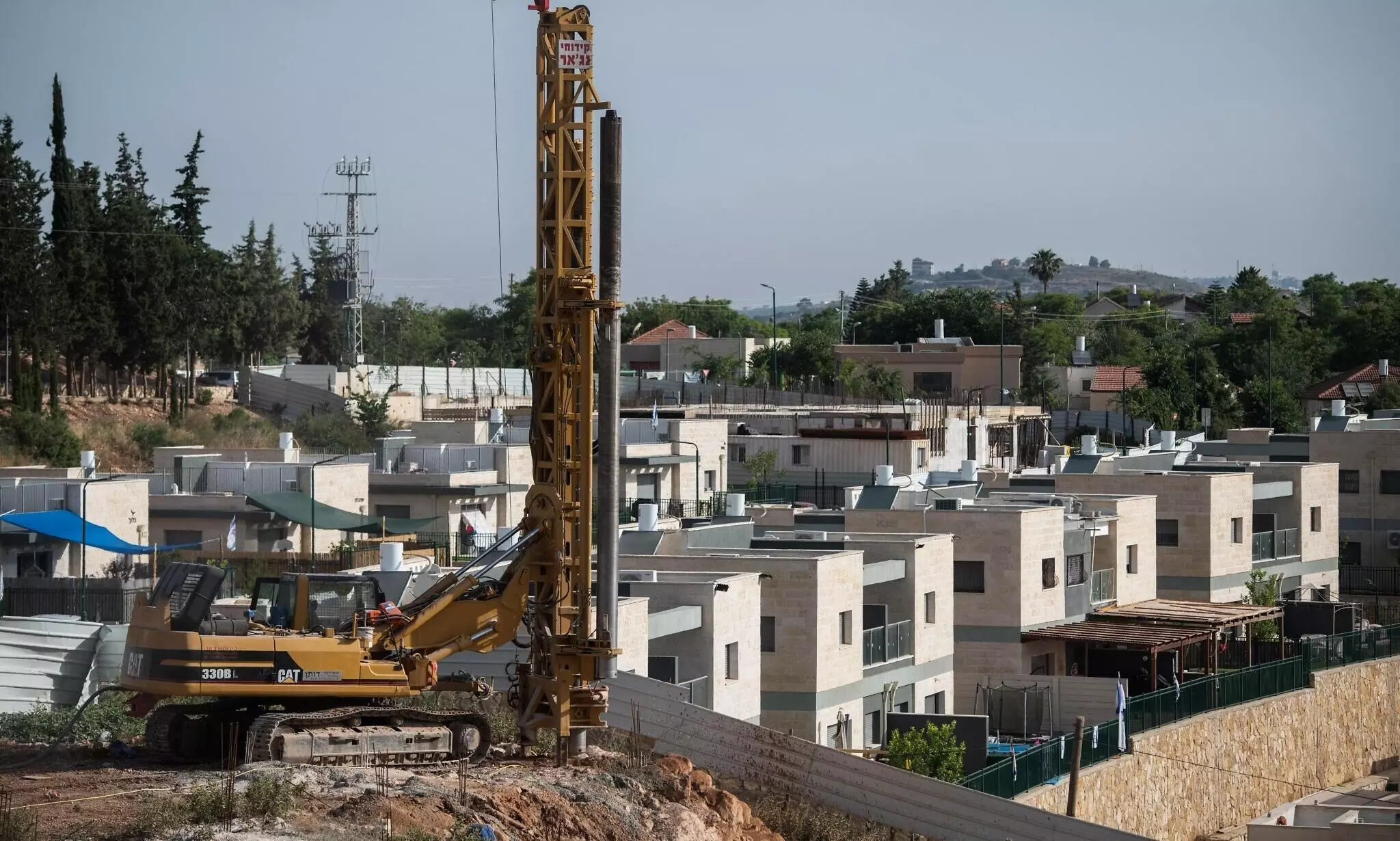
East Jerusalem witnesses surge in settlement construction following Gaza war
text_fieldsEstablishing settlements in East Jerusalem with the aim of evicting Palestinians from their homes and land is illegal under international law, yet the construction of settlements across East Jerusalem is said to be accelerating since the beginning of Israel’s Gaza war.
According to The Guardian, over 20 projects totalling thousands of housing units have been approved or advanced since the onset of the Gaza war six months ago, indicating a significant policy shift with far-reaching implications for the Israeli-Palestinian conflict and Israel's relations with the Biden administration.
The projects, predominantly spearheaded by Israeli ministries and governmental bodies, often in collaboration with right-wing nationalist groups, signal a concerted effort to solidify Israel's control over disputed territories.
These settlements, considered illegal under international law, encroach upon areas earmarked for a potential Palestinian state, further complicating the prospects for a two-state solution.
The recent Gaza conflict, triggered by surprise Hamas attacks in October that resulted in significant civilian casualties, has reignited discussions around the viability of a two-state solution. Amid escalating violence, the US, EU, and UK have imposed sanctions on individual settlers in the West Bank, underscoring growing international unease over Israel's settlement expansion.
Notable among the approved projects is the contentious Givat Hamatos settlement, frozen for a decade due to international opposition. Situated strategically to flank the Palestinian community of Beit Safafa, its revival represents a significant setback to efforts aimed at establishing a Palestinian state with East Jerusalem as its capital.
Similarly, the Givat Shaked project, long a source of division, has been granted full planning approval, allowing for the construction of high-rise blocks containing 700 housing units.
The rapid advancement of these settlement plans, even in the face of limited governmental operations following the Gaza conflict, has drawn criticism from Israeli human rights organizations. Sari Kronish of Bimkom – Planners for Planning Rights described the fast-tracking of these plans as "unparalleled," emphasizing the detrimental impact on Palestinian communities and the prospects for peace.
Critics argue that the surge in settlement construction reflects the alignment of Israel's government with the goals of the settler movement, as noted in a recent United Nations report. The report warned that Israel's right-wing government, with close ties to religious nationalists and settlers, was expanding settlements at an unprecedented rate, jeopardizing the possibility of a contiguous Palestinian state.
The demographics of Jerusalem, where roughly 40% of the population is Palestinian, add another layer of complexity to the issue. Maintaining a Jewish majority in the city has long been a priority for successive Israeli governments, leading to policies aimed at consolidating Israeli control over East Jerusalem.
Despite international condemnation and the legal implications of settling occupied territory, Israel remains steadfast in its pursuit of expansion. The recent acceleration of settlement construction not only exacerbates tensions in an already volatile region but also undermines the prospects for a negotiated resolution to the Israeli-Palestinian conflict.
As Israel presses forward with its settlement agenda, the Biden administration faces mounting pressure to address the issue and reaffirm its commitment to a two-state solution. However, with Israel's government showing no signs of slowing its expansion efforts.
























